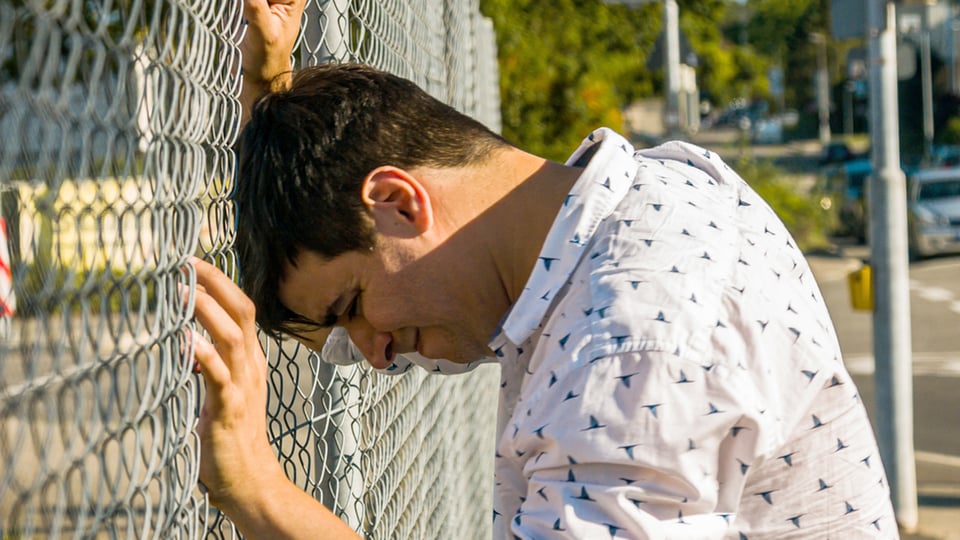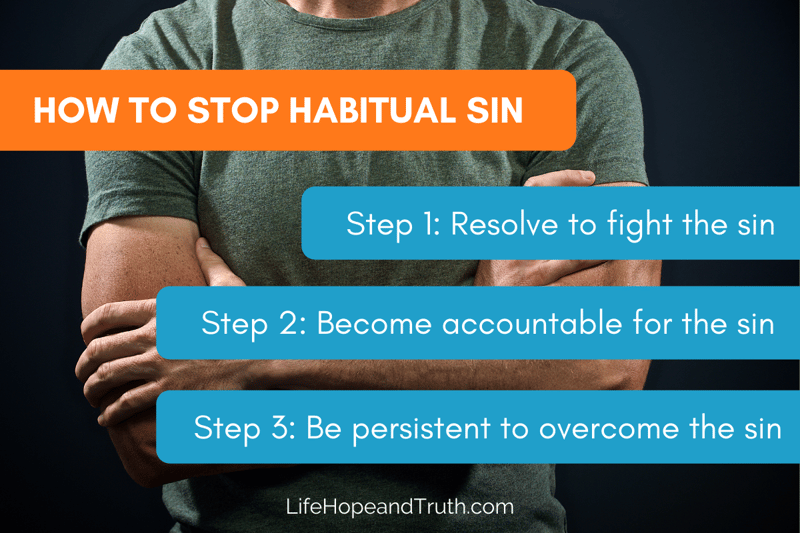How to Stop Habitual Sin
Habitual sins enslave us. We desperately need God’s help to defeat them, but we often feel ashamed to go back to Him. How can we overcome habitual sin?

There are certain sins that seem to grab hold of us, dig in 9-inch nails and hold on for dear life no matter how much we twist and turn. These are the persistent, habitual sins that we are ashamed of and try to keep secret from others, even our closest loved ones. Is it possible to stop something that is so entrenched in our daily lives?
But whatever society says to encourage us to continue in sinful behavior, those who believe that the Bible is the inspired Word of God know that there is a definite law that we are to follow: God’s.
Sin and habitual sin
Sin is defined as lawlessness (1 John 3:4). This applies to sins that continually rear their heads time and time again even after we repent.
The situation may sound familiar: We know exactly what part of God’s law we are breaking. We tell our Creator that we’ll never do it again. We succeed for a while, but temptation comes, and we fail again.
God expects those who truly believe in Him to overcome sin—even persistent, habitual sin.
Certain sins come immediately to mind, but habitual sin truly could be anything that we feel we “just can’t” overcome, from addictions to destructive attitudes.
God expects those who truly believe in Him to overcome sin—even persistent, habitual sin. He understands that we are human and will “miss the mark,” but continuing in what we know to be sin is destructive to our building God’s righteous character in our lives.
Overcoming sins that have become habitual (as compared to sins that we occasionally stumble into) will require some extra determination, focus and sacrifice.
Step 1: Resolve to fight the sin
To start the long process of overcoming a habitual sin, we have to ask ourselves a very personal and embarrassing question: “How much longer will I continue to break God’s commandments?”

More times than we’d like to admit, we won’t do what is necessary to overcome a particular sin.
Therefore, the first step is to resolve that we have lived long enough with this particular habitual sin and are basically not going to take it anymore. We have to resolve to start fighting!
Step 2: Become accountable
The next step is to determine who is going to know about any future “relapses.” God and Jesus Christ will be our first and foremost accountability partners. The secretive and shameful aspect of unresolved habitual sin can make prayer difficult or even embarrassing.
We must commit ourselves to continually going to God in prayer and humbly repenting. If we continue to avoid God because of shame, our sin will become more deeply entrenched in our character, and we will risk our conscience becoming “seared with a hot iron” (1 Timothy 4:2).
As soon as we realize we’ve relapsed into a habitual sin, we must go to God in prayer. He is our most valuable accountability partner because He fully understands our human weakness and is able to help us overcome.
As soon as we realize we’ve relapsed into a habitual sin, we must go to God in prayer.
Next, find a loving and merciful human accountability partner. Whether it is a spouse, close friend, minister or family member—another human being can help us if he or she knows about what we are struggling with.
This can be the hardest thing in the process, due to shame or embarrassment. Still, it helps in destroying the secrecy and “cover-up” that allow our habitual sins to stay alive and thrive. The extent and frequency of what we tell this person is up to us, but we have to remember that the person is there to help us.
Choose this person carefully! The person must be loving, supportive and understanding. Some people, even some who claim they are Christian, will literally “cast the first stone” if they find out about your sin. Also, we should be careful about choosing someone who is currently struggling with the same sin. Sometimes that can make matters worse.
Christ, when confronted with a woman caught in the act of adultery, said, “He who is without sin among you, let him throw a stone at her first.” He soon after told the woman to go and sin no more (John 8:2-11). This is the kind of accountability partner we want to find: someone who is rooting for us without enabling us to sin. We need someone who will be there for us and never give up on us as long as we are committed to change.
To learn more about Jesus’ encounter with the woman caught in adultery, read “Go and Sin No More.”
Step 3: Be persistent and sacrifice to overcome the sin
Just as the habitual sin was so persistent in our lives, the replacement behaviors for that perpetual sin should be just as consistent once we have gotten control of the problem. Taking one day at a time, we will continue in positive, God-approved behaviors instead of the destructive behaviors we have left behind.
Overcoming is not easy. However, it can be done.
To do this, we may have to sacrifice some things in our lives, such as former routines, entertainment choices, friendship circles or things that are a “trigger” for that particular sin. These sacrifices may be uncomfortable and frustrating, but we must remember why we are making them.
By the very nature of deeply entrenched habits, there will likely be “relapses,” but what counts is what we do after those relapses:
- Repent to our first accountability partner, God, and pray for strength to get back up and not sin again. Diligently study the Bible for instruction on overcoming and avoiding this sin in the future.
- Talk with our human accountability partner to discuss what went wrong and how to avoid it next time.
- Integrate positive and effective replacement behaviors into our lives.
- Pray every day for God’s power and strength to help overcome the sin.
Be determined to keep fighting sin!
Overcoming is not easy. However, it can be done. It all starts with understanding how much God hates sin and how much He loves us and wants us to be like Him. This should lead us to have a determination to live the way that God intends for us to live—now and forever!
That is how you can overcome habitual sin.
Date Posted: August 4, 2021



